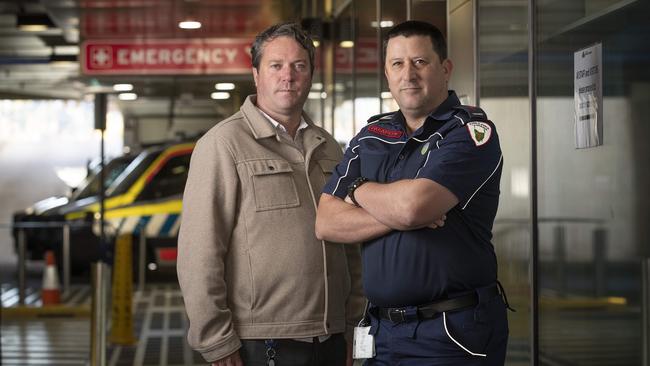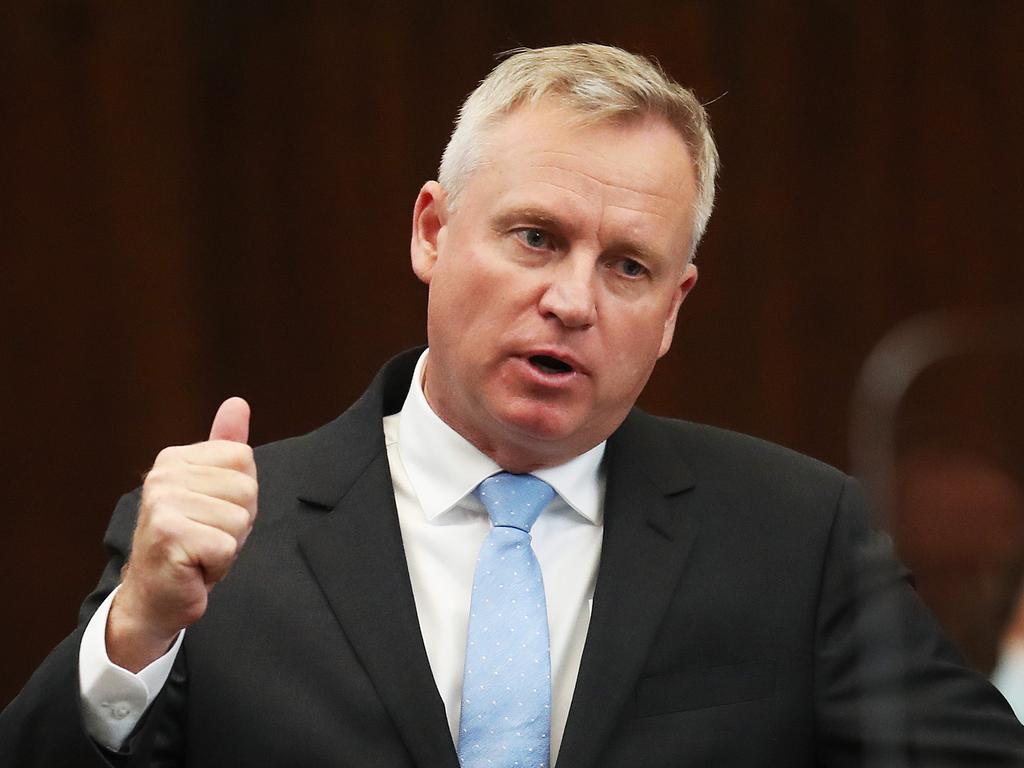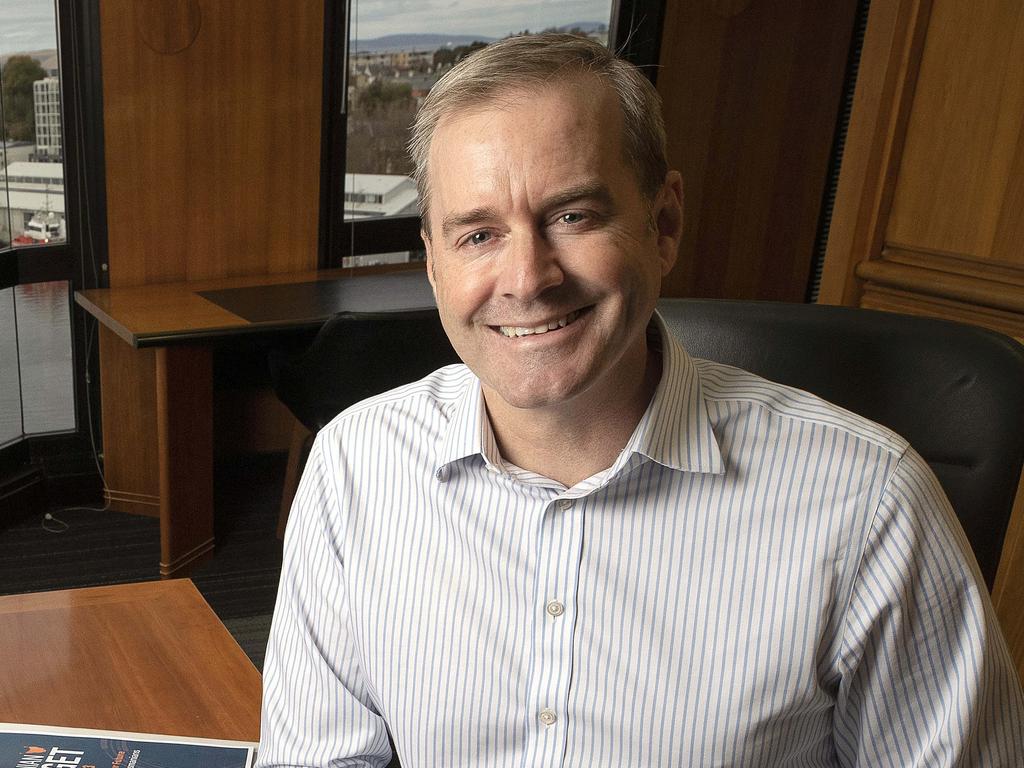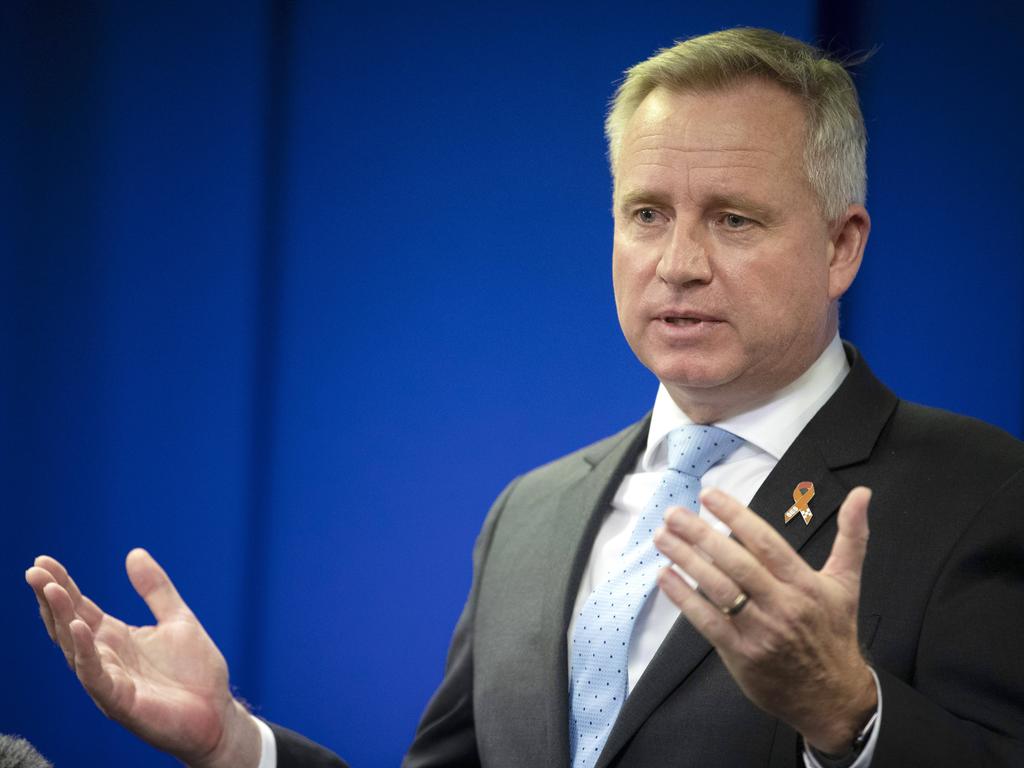Tasmania’s public service pay cap sparks wages war; paramedics first to take action
Unions warn of imminent industrial action over Tasmanian government’s refusal to consider ‘very dangerous’ pay rises in-line with inflation.

Tasmania is set for a public sector wages war, with unions warning of imminent industrial action over the Liberal government’s refusal to consider “very dangerous” pay rises in-line with inflation.
The Health and Community Services Union, with a host of industrial agreements up for renegotiation, told The Australian paramedics were likely to be the first to take action, after the state budget capped rises at 2.5 per cent.
“Paramedics are considering industrial action already because they’ve tabled their log of claims with the government and have been asking for negotiations for months,” said HACSU industrial manager Robbie Moore.
“The government is not getting back to us and members are considering industrial action (against) … Ambulance Tasmania at the moment.”
A series of other health pay deals, including radiology staff and dental officers, were due for renegotiation from June 30, and industrial action could be expected in light of the government stance.
On Friday, Treasurer Michael Ferguson said it would be “very dangerous” for Australian governments to agree to public sector pay rises in-line with inflation, forecast at 5.5pc in Tasmania in 2022-23.
His first budget, unveiled on Thursday, provides for public sector pay increases of 2.5pc, while locking in two years of substantial deficits, before slim surpluses, and hiking net debt from $1.5b to $5.2b.
This means while the government has promised to bargain in “good faith” it has little wriggle room, with Premier Jeremy Rockliff warning each pay hike of 1pc above 2.5pc would cost taxpayers $300m a year.
Mr Moore said such an approach was already a breach of “good faith” and without inflation-level pay rises the state would continue to lose skilled workers from the health system.
“The reality is that there is no way we can fix the health system without keeping wages at least up with inflation,” Mr Moore said. “We have to compete with the mainland, especially for health professionals who are among the lowest paid in the country.
“For a lot of them – physio, occupation therapist and podiatry for example – they can’t be studied here in Tasmania, so we have to attract people from interstate.
“There is no way we can do that if we are only paying 2.5pc – a pay-cut and less than other states. Their announcement around opening new (hospital) beds is something they can never deliver on because we’re losing health professions every day.”
However, Mr Ferguson said inflation-level rises were not “sensible”. “I’d be surprised if any governments around Australia would … have the capacity and … would see it as economically sensible to match wages growth to inflation,” Mr Ferguson told local radio.
“That would be potentially very dangerous. What we will do though is … work with our union representatives…and have a good faith negotiation.”
He said despite lower wages in some sectors and a housing affordability crisis, Tasmania continued to lure workers from interstate.
“We’ve seen 1200 additional health staff in recent years so we are capable of attracting them and it’s not just the wages packages; it’s also obviously this incredible lifestyle we have in Tasmania,” he said.
However, Mr Moore’s views were strongly echoed by other unions, including the Community and Public Sector Union and the Australian Nursing and Midwifery Federation.
‘This budget has been another blow to nurses and midwives who were holding on to hope that the budget would deliver the critical resources required to support a workforce whose morale is hanging by a thread,” said ANMF secretary Emily Shepherd.
“If action is not taken soon, the current staffing crisis is likely to worsen, placing the Tasmanian Health Service and (the) community at risk.’








To join the conversation, please log in. Don't have an account? Register
Join the conversation, you are commenting as Logout